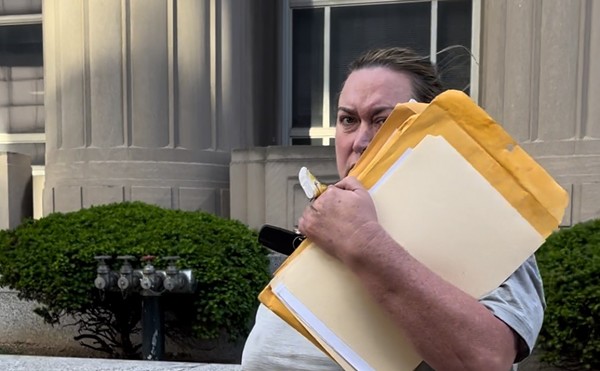Usually when a candidate loses an election, her ideas die with the campaign. Not so in the Sixth Ward.
In the special election to fill Kacie Starr Triplett's seat, candidate Michelle Witthaus made something called "participatory budgeting" a cornerstone of her campaign. The concept, which has taken off in cities such as New York and Chicago, allows neighborhood residents to have a direct say in how city money is spent within the ward.
Witthaus lost the election to Christine Ingrassia. But that wansn't the final word on participatory budgeting.
"I did reach out to Michelle after the election, and she agreed to sit down with me," says Ingrassia. "I definitely saw an interest on the part of the residents and want to make sure I'm responding to that."
So was born Participatory Budgeting-St. Louis, a nascent pilot project that will attempt to establish a process by which residents can vote on the usage of tax dollars in the ward. Witthaus and former campaign worker and community organizer Zach Chasnoff just launched a website for the project which, while currently pretty barebones, explains the idea.
"The Sixth Ward is this really neat microcosm for St. Louis. It has almost the same racial mix, there's a huge range of economic strata," says Chasnoff. "It's a great model for how it would work in the city as a whole."
Specifics are few at this point, but here's the basic idea: Residents are able to propose projects they believe would be beneficial to their neighborhood. That could mean anything from new basketball courts to a community garden to fixing the streets. Through a vetting process involving the alderwoman, doable projects will be green-lit. Then the whole ward is invited to vote on their preferred project. Chasnoff says that they will be able to tailor the voting system to be as convenient for residents as possible.
See participatory budgeting at work in New York City in this PBS segment:
Watch Participatory budgeting on PBS. See more from Need To Know.
Ingrassia says she'd like to dip into the roughly $500,000 worth of discretionary funds and block grants to test the process out first -- maybe set aside $20,000 and let residents decide how to allot the money, to gauge the level of interest and participation first.
"If that's successful, we'd allow it to expand," she says.
The concept does have its critics, of course. Some say it slows down the process of getting city dollars to work in the neighborhoods; Ingrassia herself says she's skeptical that busy working parents will make time to come to planning meetings and polling.
"But the idea is that that group of people tends to be more involved when they feel they're not disenfranchised," says Ingrassia. "Compared to the status quo, that part of it is exciting to me."
Follow Jessica Lussenhop on Twitter at @Lussenpop. E-mail the author at [email protected].






